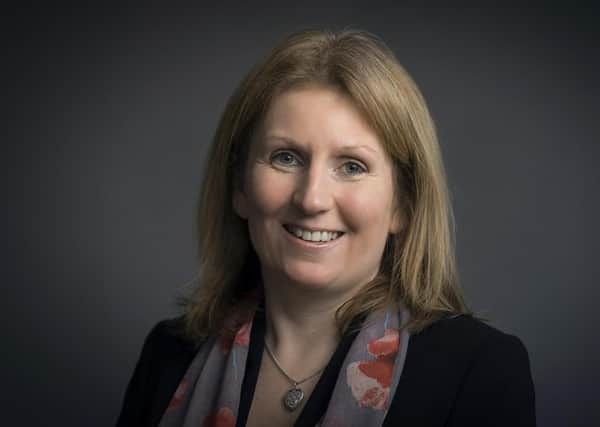Move making a will up the life admin ‘to-do’ list – Carole Tomlinson


The current pandemic is causing us all to pause and think much more about our own health and the health of our loved ones. In lockdown, some of us may have more time to think about our wishes should we become ill, and longer term plans for looking after or passing on assets to loved ones.
Taking steps to have the correct legal protections in place is essential. We know that making a will, or updating one, is something we mean to do, but quite often remains on the life admin “to do” list. The same is true for setting up a power of attorney. While we are all concerned about the impact Covid-19 may have upon our families, our friends, colleagues and businesses, it may provide some comfort to know more about how to make our wishes clear and some of the protections we can put in place now for the future.
Why make a will or have a power of attorney?
Advertisement
Hide AdAdvertisement
Hide AdWith so much uncertainty at this difficult time, one thing you can make certain is that your estate passes to loved ones after your death. Creating and putting in place a will allows you to choose what happens to your estate after death and ensures that your loved ones benefit in the way that you want them to. Many believe there’s no need to make as will as their estate will simply pass to their spouse, partner, children or other loved ones. However, this is not necessarily the case – your estate would pass under the laws of intestacy. These laws have been in place since the 1960s and do not provide for modern family structures, including for co-habitants, meaning that family members may not receive anything.
When it comes to a power of attorney, the reality is that no-one has the authority to make decisions on your behalf without being appointed by you as attorney. By the time a power of attorney is needed, it can be too late for a person to grant one. At the present time, a power of attorney could not be more needed. In Scotland, there are three types:
– Continuing (Financial) Power of Attorney: allows the granter to appoint someone as attorney to look after their property and financial affairs
– Welfare Power of Attorney: allows the granter to appoint someone as attorney to make decisions in relation to health and welfare if they become incapacitated
– Combined Power of Attorney: allows the granter to appoint someone as attorney to look after both property and financial affairs immediately and health and welfare when required
Creating a will or power of attorney amidst Covid-19
Despite most aspects of our daily life being interrupted during this period of lockdown, most lawyers are able to set up both wills and powers of attorney via remote working, calls and emails. Wills can be sent out for signing via post or by email for printing and signing. An independent witness doesn’t necessarily need to be present when signing your will, your lawyer can advise how best to deal with this aspect.
Unlike a will, a power of attorney must be certified at the time of signing by a solicitor or a doctor. Covid-19 is making it tricky for these certificates to be given. However, with recently revised Law Society of Scotland guidance, your lawyer can talk to you about how this can be done according to individual requirements.
Changing your will or power of attorney amidst Covid-19
You may already have these essential legal documents in place, but they may now need to be reviewed as wishes and financial positions simply change over time. We usually suggest that wills and powers of attorney are reviewed from time to time and, under these current challenging times, knowing everything is in place is one thing we can tick off our life admin to do list.
Advertisement
Hide AdAdvertisement
Hide AdThe current pandemic is giving us all pause for thought on these important issues, it’s never been more true to say that your trusted private client lawyers are here to help with the most sensitive of issues.
Carole Tomlinson, Partner, Anderson Strathern